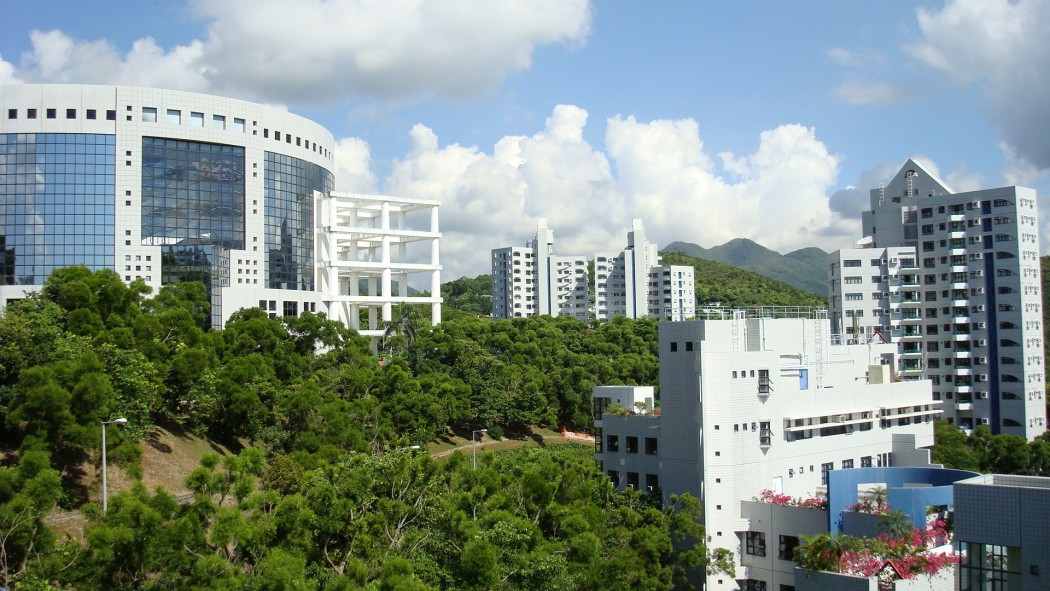Half of Hong Kong’s eight public universities extend spousal benefits to employees in same-sex marriages, while three have unclear policies and one does not, HKFP has found.
The city’s eight public universities funded by the University Grants Committee – a government advisory body – provided official responses over email.

Out of those surveyed, four said that they extend spousal benefits to employees in same-sex marriages providing that documentary evidence is given, such as a legal marriage certificate. Benefits include medical and dental coverage.
Three universities do not have a clear policy, and the remaining institution said that it does not recognise same-sex spouses because of current Hong Kong law.
LGBTQ+ rights in Hong Kong are limited. There are no anti-discrimination laws based on sexual orientation and same-sex marriage is not recognised. But a 2017 poll conducted by Hong Kong University’s Centre for Comparative and Public Law found that over half of Hongkongers support same-sex marriage – a 38 per cent rise from 2013.
‘Irrespective of gender’
Of the universities that extend spousal benefits to employees in same-sex marriages, the City University of Hong Kong told HKFP that they extend benefits regardless of sexual orientation or gender, provided that the spouse does not receive the same benefits from his or her own employer.
“The University’s definition of spouse refers to a legal spouse. To establish the spouse’s eligibility for University benefits, the staff member is required to submit valid legal documents, e.g, marriage certificate. Gender is not stipulated in the definition of spouse,” said a representative of City University.
Hong Kong Baptist University (HKBU) also told HKFP: “HKBU is committed to providing a caring and inclusive working environment in which differences and preferences are respected. For an employee who is offered one year or above appointment, the University provides medical benefits to his or her legal spouse as supported by a legal marriage certificate, irrespective of gender.”
The Hong Kong University of Science and Technology likewise offers remuneration packages to the legal spouses of employees, regardless of sexual orientation.

Additionally, the Chinese University of Hong Kong confirmed that it provides medical benefits to the legal spouses of employees in same-sex relationships.
Alfred Ip, Chairman of NGO Pink Alliance, told HKFP: “It is good news that four universities are taking the lead in recognising same-sex marriages. They are in good company with many other prestigious tertiary education institutions around the world.”
“Pink Alliance also finds it unfortunate that public institutions are taking the lead on this issue rather than our government, which is sadly slow to provide even basic legal protections against discrimination for the LGBTI community. They trail rather than respond to the swelling tide of public support for equal treatment for all.”
Undetermined
Three other public universities in Hong Kong do not have a clear policy on employees in same-sex marriages.

Lingnan University provides medical and dental benefits to the spouses of employees, but declined to clarify whether this extends to legal same-sex marriages: “We have never handled cases related to legally married same-sex spouses of employees before,” a university representative told HKFP.
See also: HKFP Investigation: As Hong Kong’s private clubs open their doors to gay couples, progress remains slow for some
A representative from the Education University of Hong Kong (EdUHK) told HKFP that they provide fringe benefits to the legal spouses of staff members, which includes access to their libraries and sports facilities.
The representative said: “We review our policies from time to time. As a publicly-funded institution, EdUHK is obligated to observe the relevant rules and regulations, and use its resources prudently. EdUHK is an equal opportunities employer and shall provide appropriate benefits to its staff members and dependents as far as practicable, subject to the rules and regulations of the external service providers.”
When pressed on whether this policy extends to legally married same-sex couples, the University representative declined to elaborate: “As stated in our reply, EdUHK provides fringe benefits to staff members’ spouses of legal marriage.”

Additionally, the University of Hong Kong could not provide more details on its spousal benefits policy towards married same-sex couples: “The University of Hong Kong provides benefits including housing and medical benefits to employees and their dependent spouses and children entitled to such benefits in accordance with provisions in the staff handbook,” said a representative of the university.
When asked whether this policy includes married same-sex couples, the office said that they could only reiterate their reply.
The University of Hong Kong regularly conducts surveys on public support for same-sex marriage in the city. But Ip told HKFP that university management has lagged behind on LGBTQ+ rights: “[T]here continue to be universities in Hong Kong that have failed to embrace marriage equality like their progressive counterparts, not the least of which is the University of Hong Kong, with its claim to be the city’s premier university… management of the university has shown to be behind the curve socially in comparison.”
Hong Kong law
The Hong Kong Polytechnic University, however, indicated that although medical benefits are provided to the spouses of employees, this does not extend to married same-sex couples. A university representative told HKFP: “These benefits will be provided to the spouse as recognised by the laws of Hong Kong.”

In July, the Court of Final Appeal upheld a ruling in favour of lesbian expat QT, which said that the refusal of a spousal visa based on her marital status amounted to unlawful discrimination. It was hailed as a “landmark victory” for the gay community and a positive step towards equality.
Sam Ho from the Equal Opportunities Commission (EOC) told HKFP that the watchdog is pleased to know that half of Hong Kong’s publicly-funded universities recognise same-sex marriage under their spousal benefits policy: “It sets a good practice on same-sex relationship recognition and the protection of equal rights of LGBTI persons. These are important for upholding Hong Kong’s competitiveness both as an international city and a global business hub, and attracting talents.”
He added: “There is currently no legislation against discrimination on the grounds of sexual orientation, gender identity or intersex status in Hong Kong. In light of the court decision on the QT case, the EOC believes that the Government should comprehensively consider the legal framework and policy measures on same-sex relationship recognition and the protection of equal rights of LGBTI persons in various contexts.”
